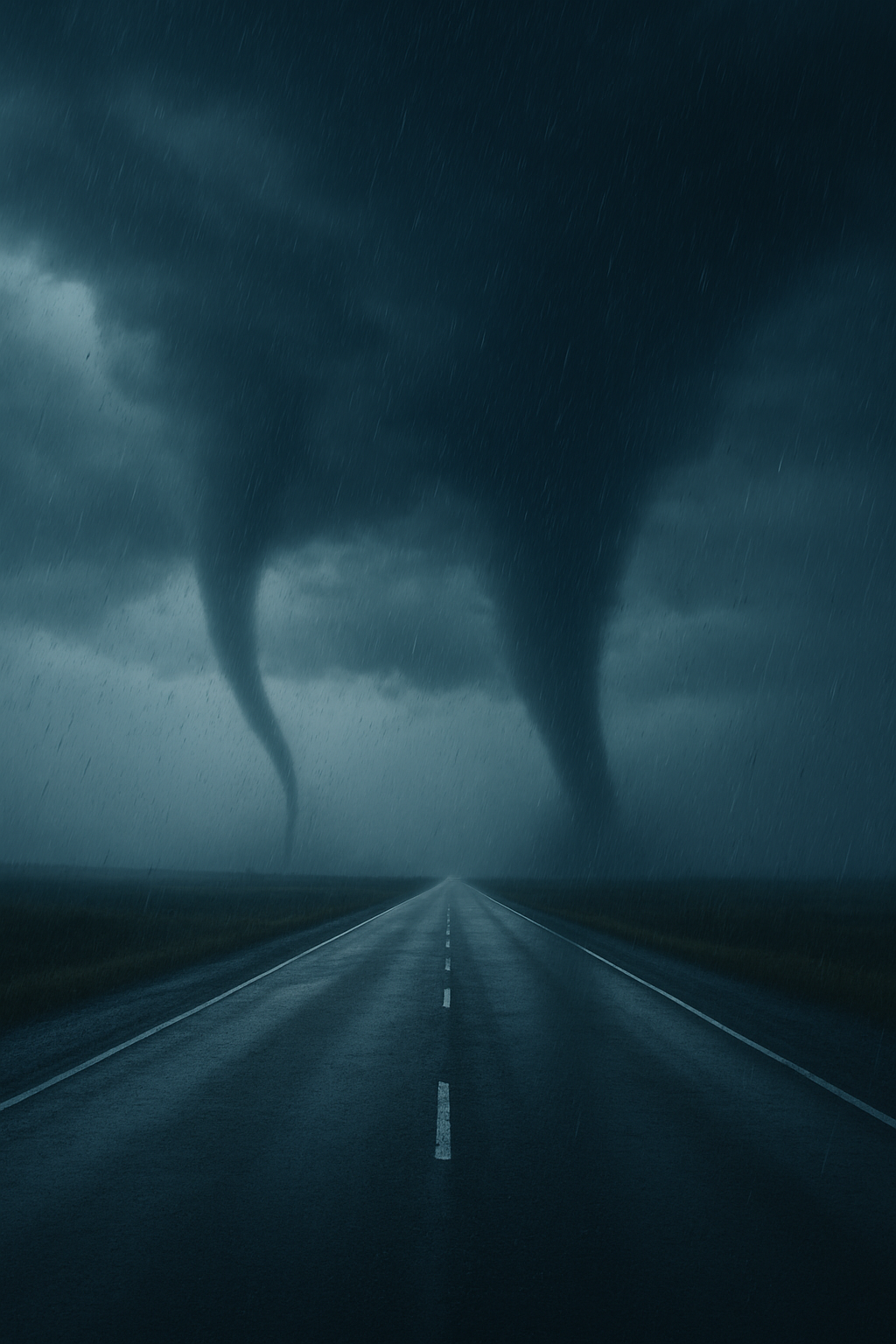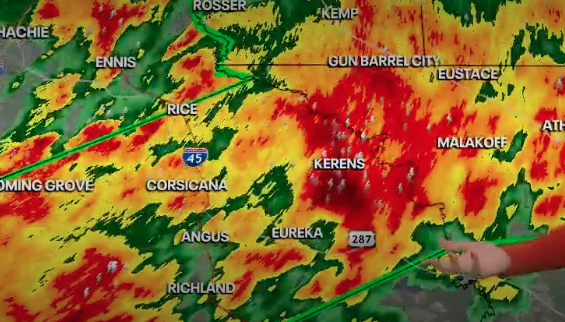What If My Story Ends Here?

My idea about death has changed over time—not in the abstract, philosophical sense, but in the “this-could-be-my-last-moment” kind of way.
It hit me during a drive home through a torrential downpour. Rain so heavy it swallowed every sign, every sound, even my thoughts. Flooding alerts flashed every 50 feet. Tornado warnings blared across my phone. Ambulances screamed past in the distance. I sat in bumper-to-bumper traffic, trapped under gray skies, not being able to see 10 feet in front of me, and nowhere to go but inch forward.

The GPS read: 1 hour, 30 minutes out of my 4 hour drive.
A lot can happen in 90 minutes. A tornado could touch down. A semi could swerve. I could get swept away beneath an overpass. I was traveling home to celebrate my husband’s birthday, but part of me kept wondering: Could this be the day of my death?
That thought didn’t scare me as much as it should have.
For most of my life, I’ve lived life planning my exit. I kept people at arm’s length. I never got too close, tried not to get too attached. Not because I didn’t care—but because I did. For me, it was something I was slowly walking toward. Something that would take a lifetime to accomplish.
There’s a difference between existing and living. And for a long time, I was merely existing. Existing, and getting lost in television, movies, my phone, escaping from town to town. For a long time I felt like I wasn’t living, I was just existing trying to survive.
I’ve written a terrible book, but what if my life was a movie, what would that look like? Every story wrapped up with clarity, closure, and a soundtrack. Boy meets girl. Conflict. Resolution. Roll credits. But real life doesn’t work that way. We don’t get closure. Things don’t tie up neatly. The story only ends when you do. Otherwise, you just keep going—tired, bruised, and unresolved.
So I wondered: What if my story ends today? At the 45-minute mark on the GPS? Would any of this matter? My words, my work, my worry—does any of it make a difference if I’m gone?
The short answer? Probably not. Because I’d be dead.
But that’s the thing about death. It’s not always about dying. It’s about grieving. Sometimes, it’s about the loss of people who are still alive but no longer in your world. I’ve lost coworkers, friends, and family. Some I’ve grieved fully. Some still linger in the shadows of my thoughts. And some are very much alive, just no longer walking beside me.
It turns out you can grieve someone who’s not dead. The end of a relationship, a friendship, even a version of yourself—that, too, is a kind of death. And like all deaths, it comes with pain. But what I’ve learned is this: the more tightly you hold on, the harder it is to move forward.
Some grief softens with time. Other wounds stay sharp. But either way, life goes on. And you have to decide whether or not you want to go on with it.
What storytelling has taught me—what writing has given me is learning about presence. People won’t always remember what you said. But they’ll remember how they felt in the moment. And then—just like that—the moment is gone.
So, if I left this world tomorrow, would I want people to move on without me?
Yes. Absolutely.
Would some people hold on more than others? Yes, but would I want them to hold onto me forever?
Absolutely not.
Because that’s what life is. Movement. Seasons. Change. People come in and out of your life. Sometimes by choice, sometimes by force. Either way, the world keeps spinning. Not because it’s cruel—but because that’s what it was always meant to do.
And when you're stuck in fear, or bitterness, or grief, the world becomes unrecognizable. Not because it changed, but because you haven’t.